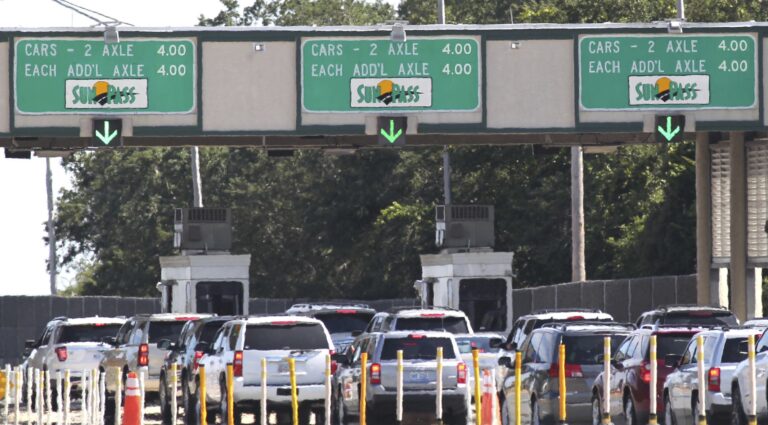TALLAHASSEE, Fla.— Florida is on the fast track to building three new major toll highways in mostly rural areas under a bill sent to Gov. Ron DeSantis by the state House on Wednesday despite concerns over their potential negative impact on the environment.
The bill, passed on a 76-36 vote, creates task forces to study the potential routes and commits tens of millions of dollars for eventual construction of the highways. Supporters say the roads will spur rural job growth, relieve congestion on Interstate 75 and Interstate 4 — the main tourist road to Walt Disney World and other Orlando theme parks — and create new hurricane evacuation routes.
Republican Rep. Jay Trumbull of Panama City, the chief House sponsor, invoked the interstate highway system’s creation by President Dwight Eisenhower in the 1950s and the building of Florida’s Turnpike as examples of essential and economically successful projects.
“Could you imagine today if you were driving through Florida without the turnpike system?” Trumbull said. “We have the ability today to push our state forward.”
One highway would connect Collier County in the southwest to Lakeland, located between Tampa and Orlando. Another would extend the Suncoast Parkway from Citrus County to Jefferson County at the Georgia border. The third would extend from the north end of the Florida Turnpike to the Suncoast Parkway.
All would be toll roads. Construction would begin before Dec. 31, 2022, with a goal of opening all three highways to traffic by Dec. 31, 2030. The task forces would select the exact routes.
Opponents said a financial commitment to the roads should await studies on whether they will harm wetlands and wildlife and spur urban sprawl. They also said the bill amounts to a handout to the highway construction industry.
“The bill before us today is the most massive expansion of our highway system since the 1950s. Let’s not green-light a project without having the proper facts,” said Rep. Bobby DuBose, a Fort Lauderdale Democrat. “We are basically handing over a blank check.”
The legislation, however, was a top priority of Senate President Bill Galvano, a Bradenton Republican, and was destined to pass from the beginning of the 60-day legislative session. Galvano said the bill requires the task forces to evaluate wildlife crossing design features that would protect endangered Florida panthers and other habitat, as well as measures that would safeguard water quality and agricultural land use.
“These new infrastructure corridors will help Florida strategically plan for future population growth, revitalize rural communities, and enhance public safety, while at the same time protecting Florida’s unique natural resources and habitats,” Galvano said in a statement.
That did not sit well with groups who say the money could be better spent on greater needs.
“This is why Floridians are so cynical about government,” said Jonathan Webber, deputy director of Florida Conservation Voters. “Just imagine the amount of good we could do if this money was spent on cleaning our water, building more parks, or finding solutions to the growing climate crisis.”
The Associated Press is an independent global news organization dedicated to factual reporting. Founded in 1846, AP today remains the most trusted source of fast, accurate, unbiased news in all formats and the essential provider of the technology and services vital to the news business. The Trucker Media Group is subscriber of The Associated Press has been granted the license to use this content on TheTrucker.com and The Trucker newspaper in accordance with its Content License Agreement with The Associated Press.





